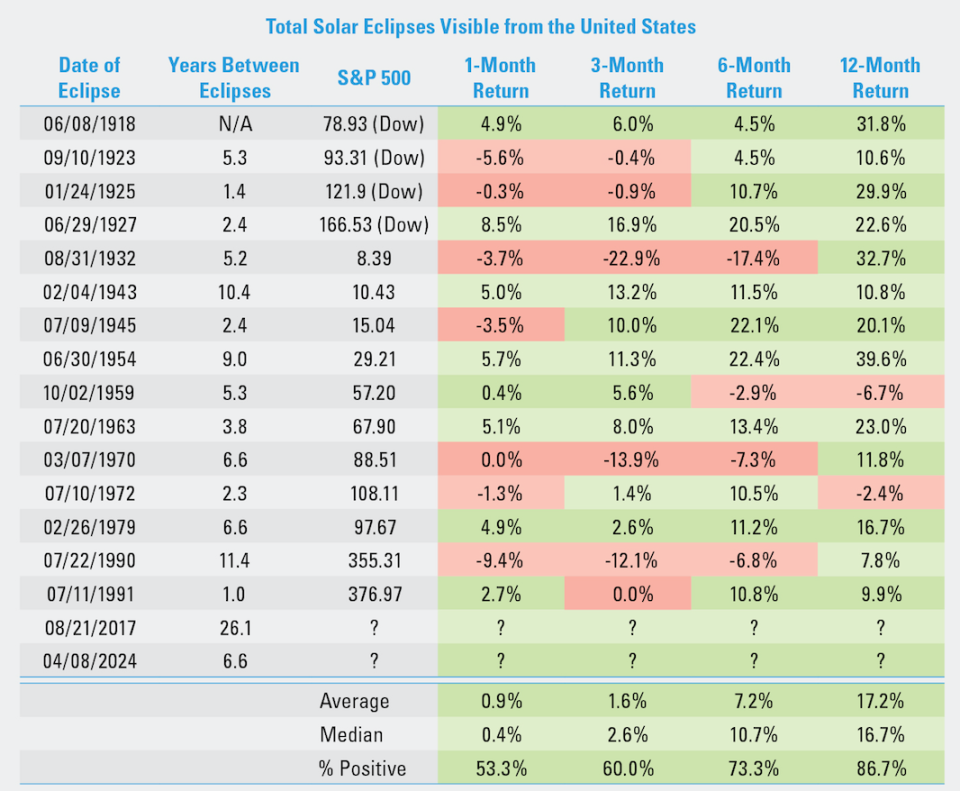What the solar eclipse means for the stock market
As Americans watch the moon pass between earth and the sun to create a solar eclipse, some investors may be wondering how stocks perform following these rare events.
“Fortunately, when a total solar eclipse has been seen in the U.S. since 1900, equity prices are up 17.2% a year later,” LPL Financial’s Ryan Detrick observed. “So it appears our biggest worry isn’t what stocks might do, but whether those glasses we bought online are officially approved by NASA!”
Detrick reviewed the past 15 times a solar eclipse has been visible from the US. On average, 1-month, 3-month, 6-month, and 12-month returns have been positive.

There really is very little to no economical basis for what the stock market does — all things being equal — during and after a solar eclipse. Some parts of the economy, like some power grids, may be affected. Beyond that, the decision to trade solar eclipses seems to be largely about superstition.
As for Detrick’s observation that stocks usually rise after eclipses, that’s actually just the nature of the stock market. It spends more time going up than down.
“[G]ains are very common historically,” Detrick tweeted.
“Should you ever invest based on the solar system?” he asked. “Absolutely not, as things like fundamentals, valuations, and technicals are still what will drive markets.”
–
Sam Ro is managing editor at Yahoo Finance.
Read more:
